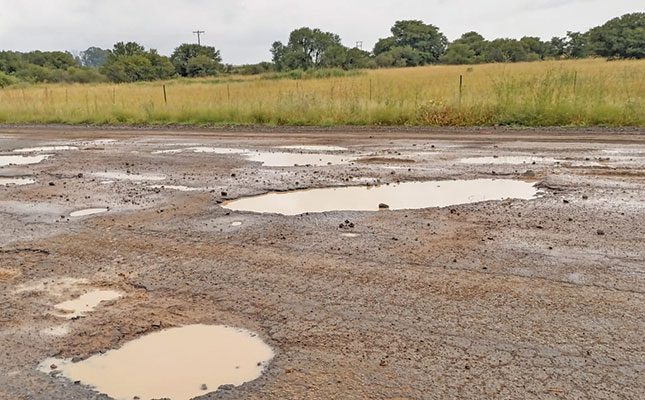
“Government has abdicated all responsibility. [Some roads have not seen] a grader for five years,” said Cobus van Zyl, chairperson of Agri SA’s economic committee, at the Mpumalanga Agriculture congress held in Badplaas, Mpumalanga, at the beginning of June.
Bemoaning the state of the roads and lack of police services, speakers at the congress believed that government did not have the will to ensure well-functioning rural communities.
Uys van der Westhuijzen, chairperson of Agri SA’s Centre for Excellence: Rural Safety, noted that policing during the COVID-19 lockdowns proved that government could control movement and clamp down on those who did not follow the law.
“There was political will to do so, and the only conclusion as to why it can’t be done every day is that there is no political will. Our government doesn’t deem it necessary to really address safety.”
Van Zyl stated that the absence of adequately functioning government departments had created a void in society, which would be filled regardless.
“The question is whether we will allow criminal elements and mafias to capitalise on those gaps, or step in ourselves to make our societies safer.”
Van der Westhuijzen added that farmers needed to be part of the solution and not think it was someone else’s responsibility. “We need to work together and build safer communities.”
Commenting on government’s lack of will to work with farmers, Robert Davel, CEO of Mpumalanga Agriculture, noted that there seemed to be no urgency in the implementation of the national rural safety strategy in Mpumalanga.
“The police say they can’t fight crime on their own, and there is […] mention of the role of the private sector in keeping rural communities safe. Yet we experience that the police ignore all offers of help from organised agriculture.”
Van Zyl noted that it had to be made clear that the problems farmers were facing were not theirs alone, but affected the entire country.
“Ultimately, we all suffer from bad roads, rampant crime and high food costs as a result of failed infrastructure. The black communities in rural areas also have a great need for safety, but they don’t necessarily have the structures to police their own areas. We have an opportunity to work together to keep everyone safe and build community cohesion.”











